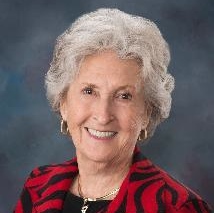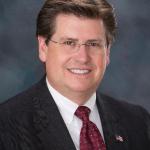The K-12 budget Sherri Ybarra sketched out Thursday won’t be the budget that comes out of the 2015 Legislature.

Rep. Maxine Bell, the co-chair of the Joint Finance-Appropriations Committee, said as much, after the new state schools superintendent completed her first appearance before the Legislature’s powerful budget-writing committee.
That’s not a criticism, said Bell. In fact, Bell said she hopes her fellow Republican won’t be disappointed by a finished product that differs significantly from her initial proposal. What will emerge, said Bell, may be a “numbers budget” where the bottom line figures are close, but the specifics aren’t.
Thursday morning represented a pivotal moment in Ybarra’s first legislative session. After a campaign criticized for a lack of detail — and 24 days after she was sworn into office — Ybarra spent about an hour fielding questions from the Legislature’s detail people. At several points, budget-writers pressed Ybarra for specifics.
Ybarra offered a new policy wrinkle: She said she would like to set a statutory cap on class sizes for kindergarten through third grade. When a first-grade teacher has a class of 30 kids, she said, the teacher is reduced to “crowd control” — and students spend 11 years catching up.
No one on JFAC questioned the concept. But Rep. Luke Malek, R-Coeur d’Alene, wanted a cost figure.
Ybarra hesitated before offering up a ballpark estimate of $3 million to $5 million per year.
Regardless of the bottom-line sum, the problem is that the K-3 class size initiative doesn’t appear in Ybarra’s 2015-16 budget. The new initiative would require some new funding, and Bell doesn’t see it happening.
The K-3 initiative is more of a long-term objective. Ybarra described it as an idea on her “wish list,” and not an ingredient in her 2015-16 budget proposal. But budget-writers had more pressing questions about one of Ybarra’s immediate priorities: a boost in districts’ “operational spending” — also a high priority for local school administrators.
Ybarra wants to increase the operational spending line item by $28.7 million. Gov. Butch Otter proposed a $20 million increase; Ybarra’s predecessor, Tom Luna, requested a $10 million increase. Local administrators say this a critical funding source that can cover anything from employee benefits to classroom supplies and utilities. Boosting the operational budget was in line with one of Ybarra’s recurring themes: restoring local control.

Ybarra increases the operational budget by zeroing out several of the line items she inherited from this year’s budget. That includes a one-time, $4 million line item for textbooks and classroom supplies. Both JFAC co-chairs, Bell and Sen. Dean Cameron, said they opposed using one-time dollars to prop up operational spending.
Still, Cameron lauded Ybarra’s overriding goal: taking one step closer to restoring the operational funding that was cut sharply during the recession. “It is a hardship on school districts.”
Ybarra also fielded some tough questions about the career ladder for increasing teacher pay. Her budget includes $25 million to launch the $175 million initiative, but she also recommended piloting the idea in nine school districts and one charter school.

Cameron said he didn’t have a strong opinion about piloting the idea, and said the House and Senate education committees will have considerable say over the mechanics of the pay plan. The idea drew a tepid review from Sen. Dean Mortimer, a JFAC member who also chairs the Senate Education Committee. He’s concerned about a plan that would boost teacher pay in some districts but not others. “You have to have a degree of fairness in whatever you do.”
During a news conference Thursday afternoon, Ybarra didn’t indicate where she might try to persuade JFAC to follow her lead.
“At the end of the day, it is JFAC that has the final decision,” she said. “I think it’s better to wait and see.”
Budget questions aside, both Ybarra and JFAC leaders are making nice.
On Thursday afternoon. Ybarra said she felt she’d been well-received by the GOP-dominated committee. Cameron and Mortimer said Ybarra was in an awkward position, as a new superintendent working off of a blueprint she inherited from her predecessor.
“I think she did a great job,” Mortimer said. “It’s hard to present somebody else’s budget.”
Bell said it would unfair to quickly judge Ybarra, in her first month on the job. Bell said her committee has only a matter of weeks to write up a 2015-16 public schools budget, the centerpiece of the state’s $3 billion spending plan. Ybarra, meanwhile, has a four-year term ahead.
“Everything is swirling for them, I think,” Bell said. “They’ve got to gel, and she’s got time.”
More coverage: Clark Corbin’s story from Thursday’s hearing, and Ybarra’s budget remarks in full.
